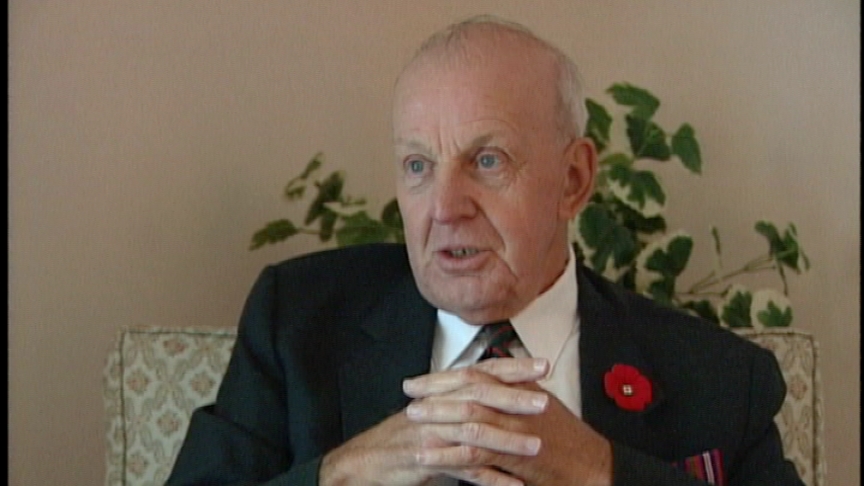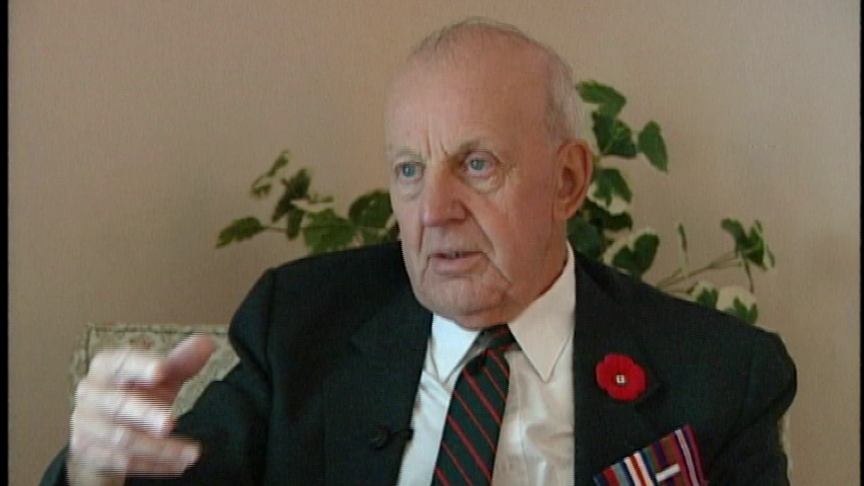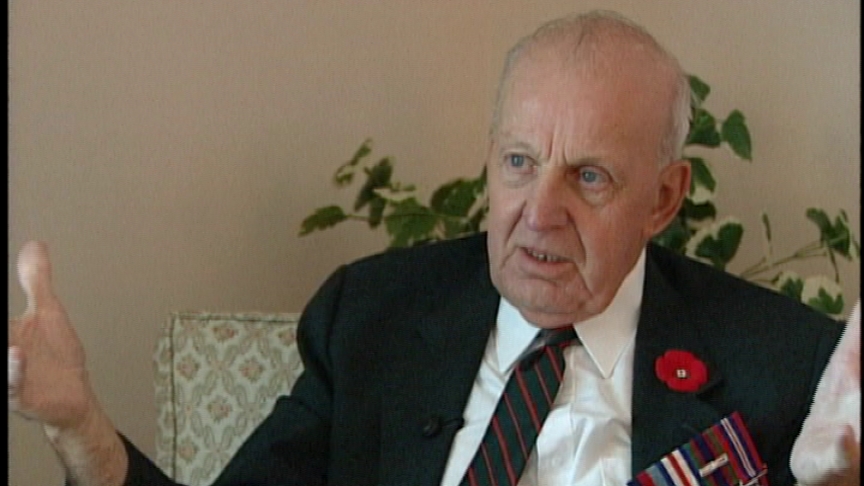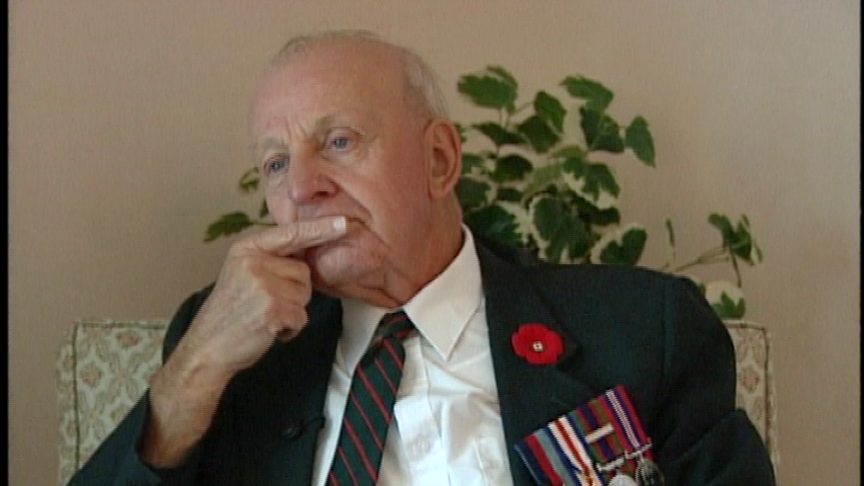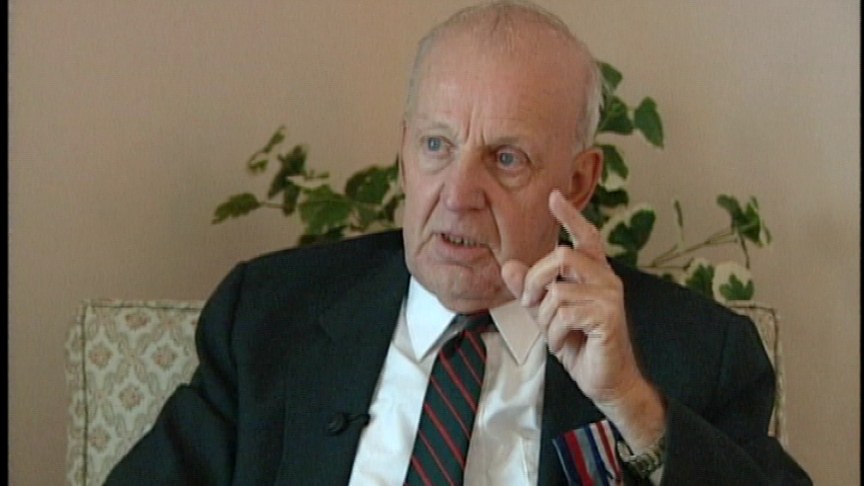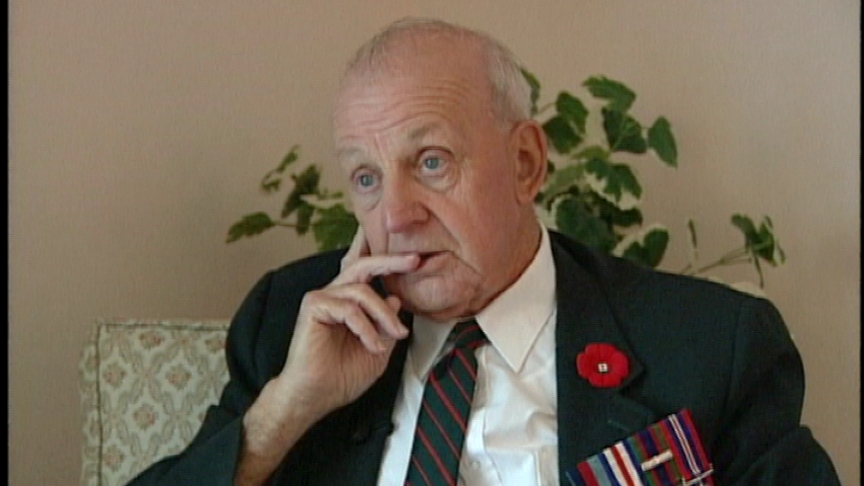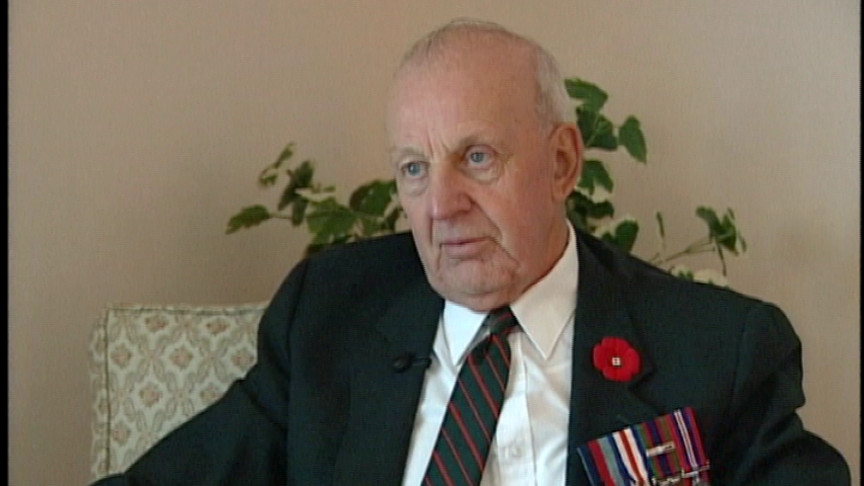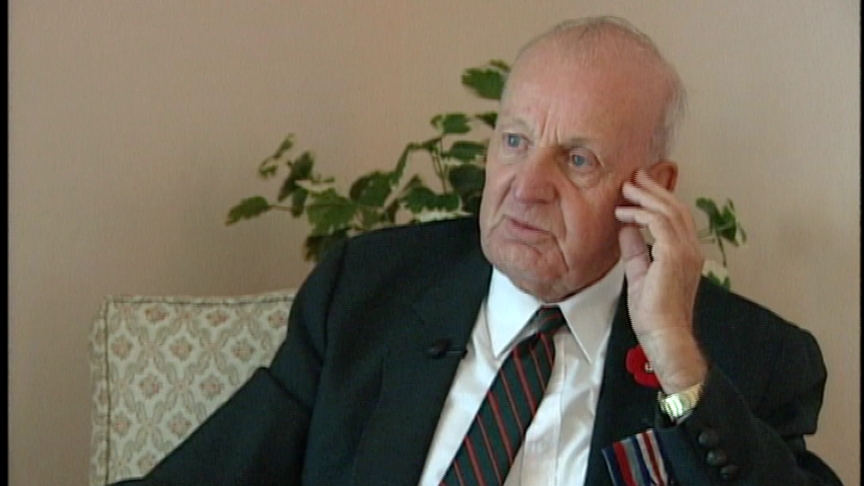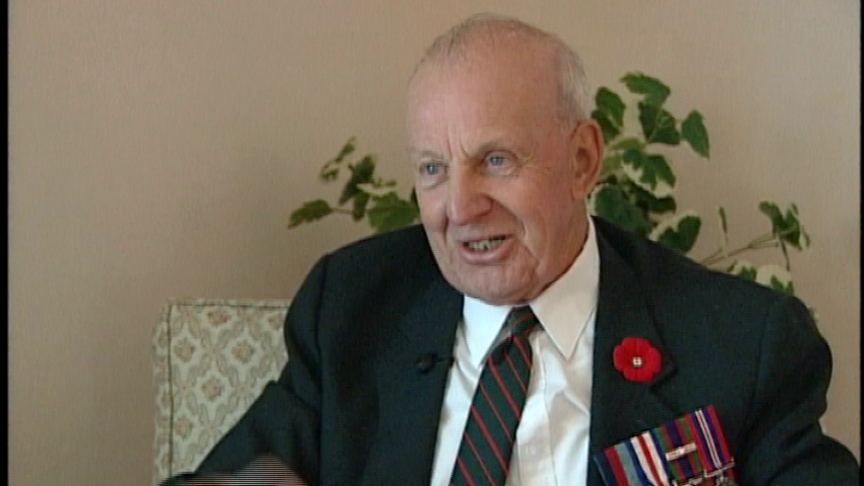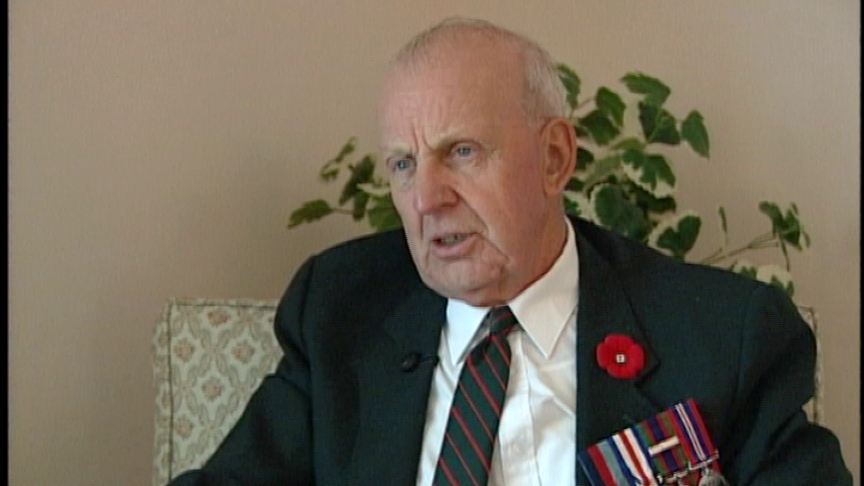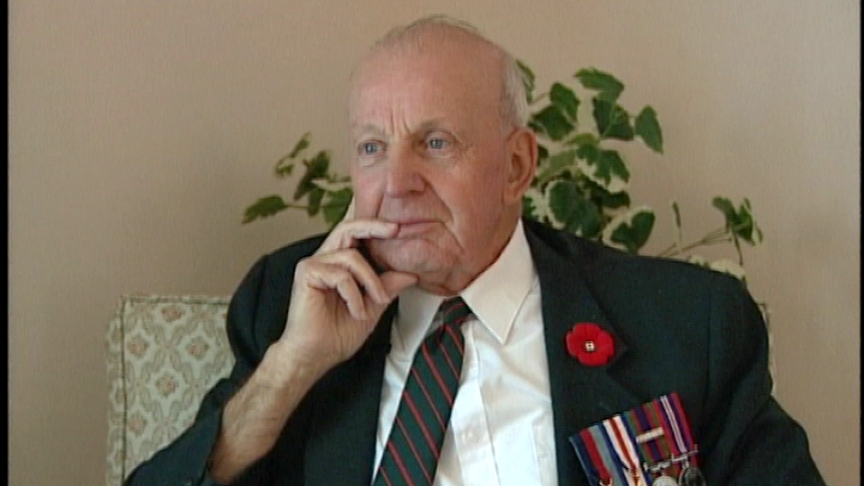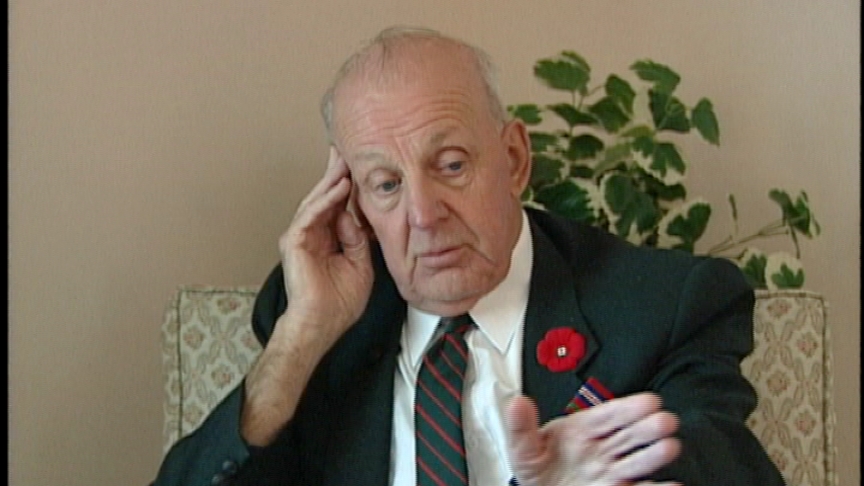Back To The Front Line
Heroes Remember
Back To The Front Line
Transcript
Description
Back in France, Mr. Ross is re-assigned to a mortar platoon as it moves into Belgium and the battle for Antwerp
Joseph William Ross
Mr. Ross was born in Montreal on February 15, 1925. His father served during the First World War and was seriously wounded at the second battle at Ypres. When Canada declared war on Germany in September, 1939, Mr. Ross was only 14 years old, working as an office boy for six dollars a week. Later, he worked as an apprentice fitter in the aircraft division of Vickers, near Montreal. Mr. Ross enlisted in the Army on his 18th birthday in 1943. After training in Quebec and Nova Scotia, he was sent as part of the reinforcement troops to England where he was assigned to ‘C’ Company of the Queen’s Own Rifles of Canada. His overseas action included landing at Juno Beach on D-Day, and serving throughout both Normandy and Northwest Europe (Belgium and Holland). During an encounter with German forces, Mr. Ross sustained injuries from flying shrapnel.
Meta Data
- Medium:
- Video
- Owner:
- Veterans Affairs Canada
- Duration:
- 03:16
- Person Interviewed:
- Joseph William Ross
- War, Conflict or Mission:
- Second World War
- Location/Theatre:
- Europe
- Battle/Campaign:
- Battle of Normandy
- Branch:
- Army
- Units/Ship:
- Queen's Own Rifles of Canada
- Occupation:
- Rifleman
Related Videos
- Date modified:



